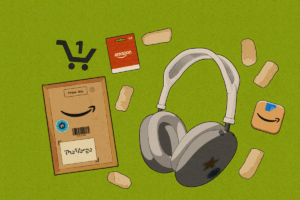
Nathan’s friends noticed something was off. The usually talkative high school student had become withdrawn, not just in class but in all aspects of life. While he assured them it was just a lack of sleep, the truth was more complex. Nathan had been spending his nights engrossed in conversations with chatbots on Character.AI, discussing everything from philosophical musings to anime characters. This digital interaction left him feeling down when he wasn’t engaged with the bots.
“The more I chatted with the bot, it felt as if I was talking to an actual friend of mine,” Nathan, now 18, shared with 404 Media. It was during Thanksgiving break in 2023 that Nathan realized his obsession was interfering with his life. While his friends enjoyed a sleepover, he longed to escape and converse with his AI companions. The next morning, he deleted the app, though he would later reinstall and remove it again, struggling with the pull of AI interaction.
The Emergence of Chatbot Dependency
Nathan’s experience is not isolated. Recent weeks have seen a surge in reports of chatbot codependency and addiction. As chatbots become more sophisticated, offering personalized interactions and improved memory, stories of addiction have become more prevalent. OpenAI research highlights that some dedicated ChatGPT users experience increased loneliness and dependency, with reduced socialization.
Nathan found solace in online communities, like Reddit, where others shared similar struggles. He discovered forums such as r/Character_AI_Recovery, which serve as digital support groups for those seeking to break free from AI dependency. These communities offer a space for individuals to share their experiences and strategies for recovery.
Community Support and Personal Stories
Posts on these forums range from desperate confessions of addiction to triumphant declarations of recovery. Aspen Deguzman, an 18-year-old from Southern California, started using Character.AI for storytelling and role-play. However, it soon became a confidant for personal issues, leading to late-night sessions that disrupted their life. Recognizing the unhealthy pattern, Deguzman founded the “Character AI Recovery” subreddit, offering a platform for anonymous sharing and support.
“Using Character.AI is constantly on your mind,” Deguzman explained. “It’s very hard to focus on anything else, and I realized that wasn’t healthy.” The forum’s anonymity allows users to discuss their struggles without fear of judgment, creating a supportive environment for recovery.
Industry and Regulatory Responses
The growing concern over AI addiction has prompted action from consumer advocacy groups. In June, the Consumer Federation of America and other organizations filed a complaint with the Federal Trade Commission, urging an investigation into generative AI companies like Character.AI. The complaint accuses these platforms of using addictive design tactics, such as follow-up emails, to re-engage users.
Tragically, the issue gained further attention following the suicide of a Florida teenager who had interacted with a chatbot on Character.AI. The teen’s mother has since filed a lawsuit against the company, alleging that the interactions contributed to the tragedy. In response, Character.AI stated, “We take the safety and well-being of our users very seriously. We aim to provide a space that is engaging, immersive, and safe.”
Expert Insights and Future Implications
Experts like Jodi Halpern, a UC Berkeley professor, emphasize the addictive nature of AI interactions. “As long as the applications are engineered to incentivize overuse, they trigger biological mechanisms—including dopamine release—that are implicated in addiction,” Halpern noted.
David, a 40-year-old web developer from Michigan, exemplifies how AI addiction transcends age. Initially using chatbots for work and creative writing, David found himself increasingly dependent on the dopamine rush from AI interactions. His personal and professional life suffered as a result, leading him to seek support through online forums.
“There were days I should’ve been working, and I would spend eight hours on AI crap,” David confessed. “I might have a week or two where I’m clean, and then it’s like a light switch gets flipped.”
Addressing the Growing Challenge
As awareness of AI addiction grows, some states are considering regulatory measures. Following the Florida incident, California senators introduced Senate Bill 243, which would require AI companies to report data on suicidal ideation detection. However, tech companies argue that such regulations may be unnecessary for service-oriented AI systems.
The issue of AI dependency is complex and multifaceted, affecting individuals across different demographics. While some find solace in online support groups, others struggle to find adequate professional help. The rise of AI addiction underscores the need for greater awareness and understanding of the psychological impacts of AI technology.
As the digital landscape continues to evolve, society must grapple with the balance between technological advancement and mental health. The stories of Nathan, Deguzman, and David highlight the importance of community support and the need for ongoing dialogue about the implications of AI on human behavior.







